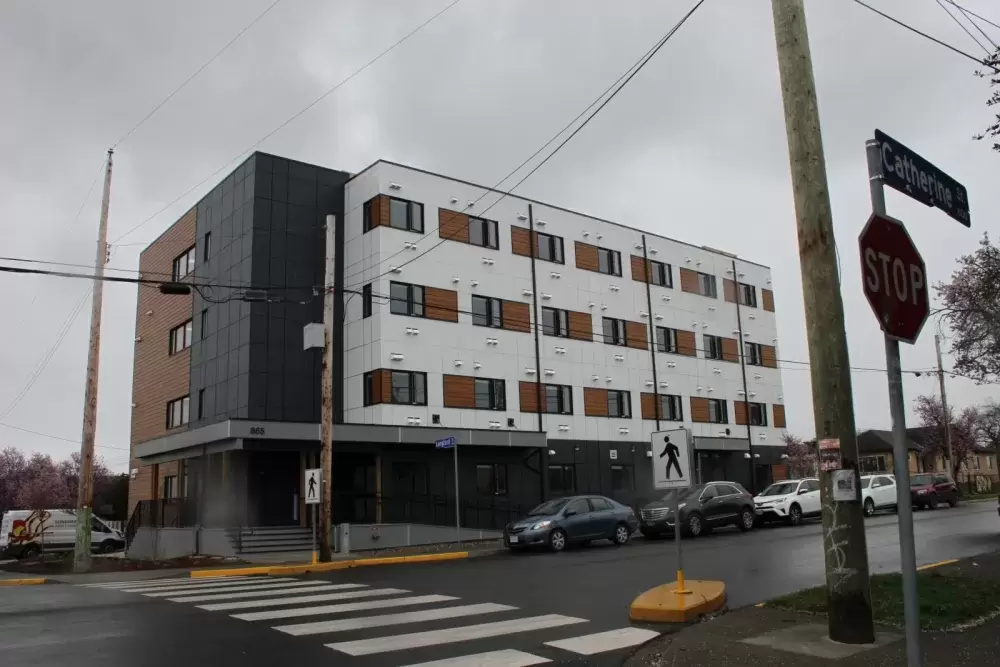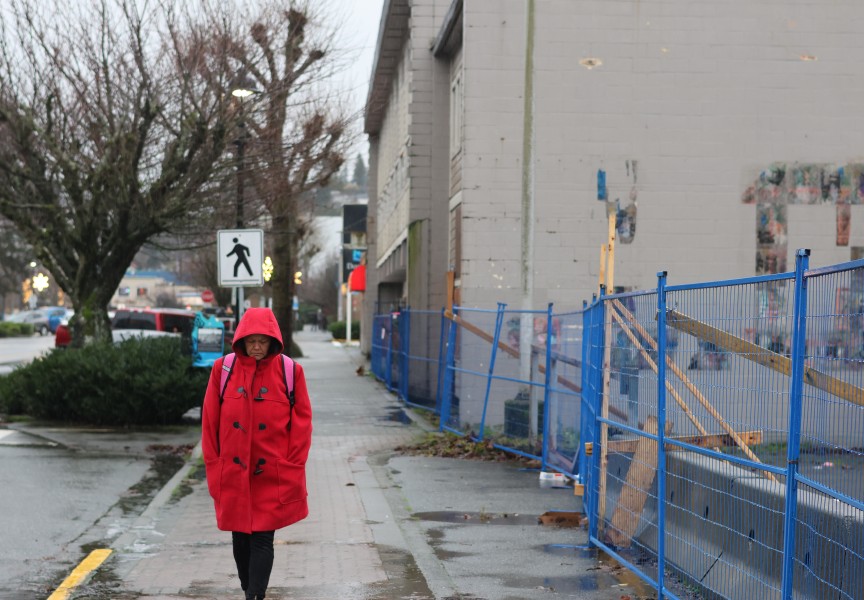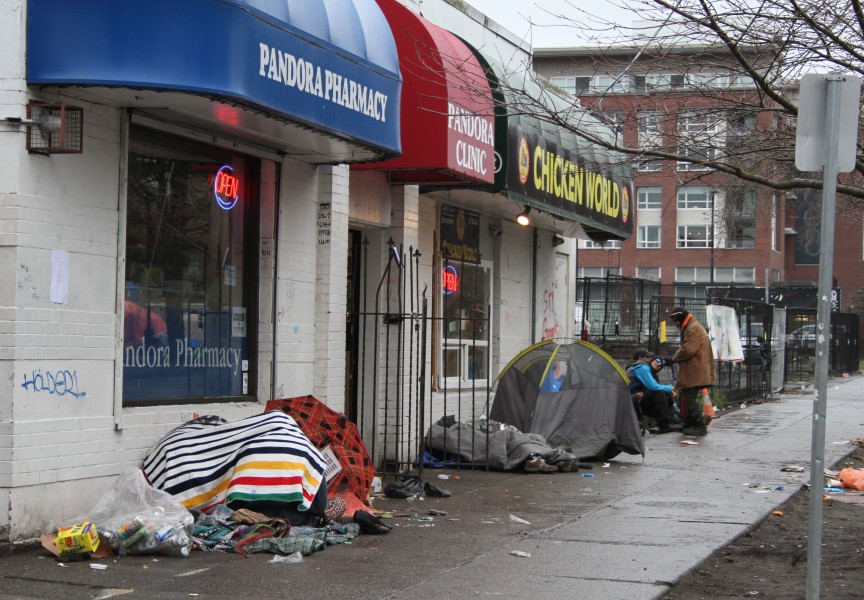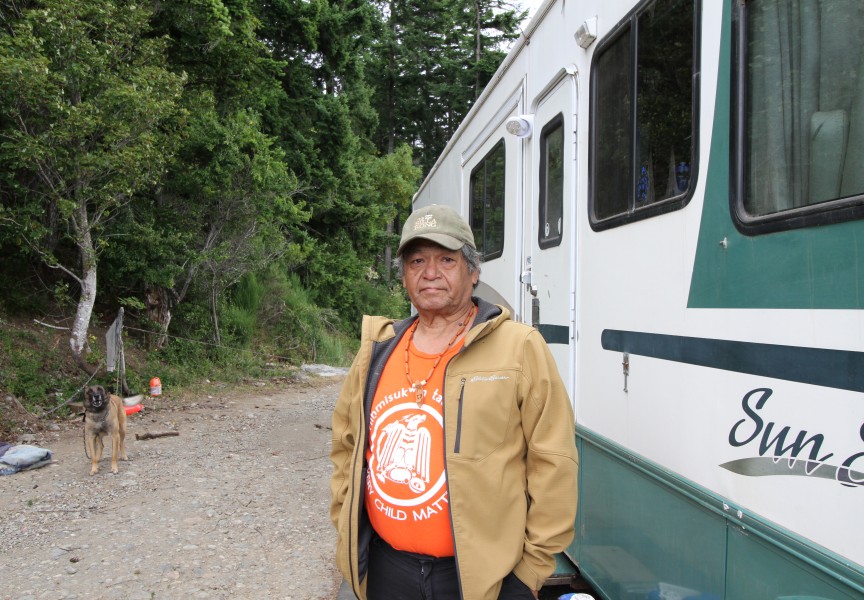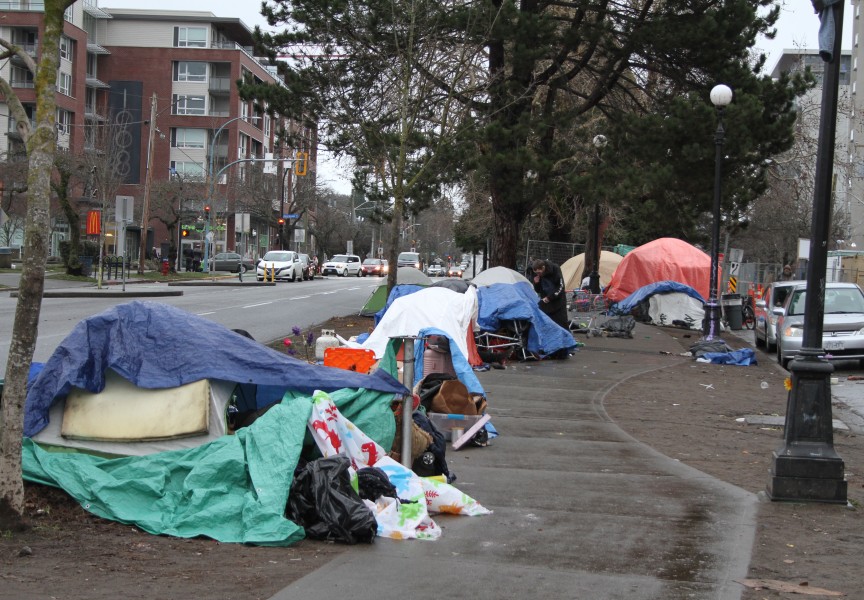Forty-three people at risk of homelessness will soon have a permanent home in Victoria, at a facility designed to provide the positive elements of a First Nations community.
Over the next two weeks the House of Courage will be taking in its first residents. Located at 865 Catherine Street, deep within a residential neighbourhood in west Victoria, the four-storey facility will offer a carefully selected group their own suites, with meal services, employment and life skills programming delivered by around-the-clock staff.
Operated by the Aboriginal Coalition to End Homelessness Society, the House of Courage will not be a clinical rule-bound facility that treats its residents like clients, says Executive Director Fran Hunt-Jinnouchi.
“We’re in it for the long haul,” she said. “We’re not about warehousing people. We’re about creating community, culture, decolonized harm reduction deeply rooted in land-based healing.”
Designated elders will be central to the home, fostering a sense of belonging and respect among residents. “Aunties” are also being hired to support residents manage their lives at the House of Courage.
“What actually fosters transformation, healing and change is connection to elders, to community, to culture to strengthen the Indigenous self identity,” said Hunt-Jinnouchi. “All of these things together create a foundation in which they feel stronger, they get a sense of purpose, and with that purpose comes hope.”
Residents will be selected from a list of over 100 eligible candidates, Indigenous people who have been living in Victoria’s converted hotels that will soon close down - or even in some cases people who have come directly from sleeping on the streets.
Hunt-Jinnouchi explains that finding shelter for someone who has struggled with homelessness can be a challenging transitional process reliant on building trust.
“There’s a whole roadmap of trauma where they’ve been let down, where things didn’t pan out as they hoped,” she said. “For many, there is as much fear about leaving that downtown core, because they’ve created family and community there.”
Developing trust within the neighbourhood surrounding the community has also been considered by the coalition, which has made committees with the Vic West Housing Society to deal with any concerns from neighbours.
The House of Courage was built with a $5.7-million grant from BC Housing, which will also supply annual operational funding, plus $11.3-million in federal funds delivered through the Capital Regional District.
“The opening of House of Courage signifies another critical step toward providing safe and affordable homes for all Canadians,” said Ahmed Hussen, federal minister of Housing and Diversity and Inclusion, in a press release.
The initiative aims to target a grossly overrepresented portion of Victoria’s homeless population. Despite comprising just 4.7 per cent of the city, one third of Victoria’s homeless identify as Aboriginal, according to the 2018 Point-in-Time-Count that was conducted March 15 five years ago, the most recent such survey identifying unsheltered people in the city. Of the count’s Indigenous participants, nearly half were in the foster care system, while 14.6 per cent went to residential school. Nuu-chah-nulth led Vancouver Island’s tribal groups among Victoria’s homeless population.
At 20 per cent, addiction or substance use issues were at the top of the list of causes for housing loss - ahead of a lost job, poverty or illness – and addiction and mental health support were the most common services needed among those counted.
The House of Courage is prioritizing the management of alcoholism with a designated area on its fourth floor for what Hunt-Jinnouchi describes as “harm-reduction management”. Under the care of a physician and on-site nurse, a resident’s “beverage of choice” will be dispensed at pre-determined times with the aim of mitigating the harmful effects of alcohol dependence.
“There are individuals who have chronic alcoholism – perhaps non-beverage use, other things that aren’t alcohol that are ingested – and often when they get to that chronic area, that part of their addiction, their lives are threatened without alcohol,” said Hunt-Jinnouchi, adding that without the struggles of being on the street, in time an alcoholic can gain more control over their life. “What you actually see is that they start to have longer periods of clarity and focus.”
While the House of Courage is in Vancouver Island’s largest city, trips to a resident’s traditional territory are an integral part of their healing process, offering chances to experience the wisdom of their ancestors.
Hunt-Jinnouchi recalls when one of these trips benefitted a man who was living on the streets for over 30 years. After refusing to live within four walls, the man eventually agreed to stay at the coalition’s Culturally Supportive House. While on a trip north he received a “message from the Creator” when a swing he sat on suddenly broke.
“On the way home from that camp he said, ‘I want to go to treatment’,” said Hunt-Jinnouchi. “Thirty years he had a cubby downtown where he panned, he slept, he drank. He’s now 2 ½ years in independent, subsidized housing on the west shore.”

